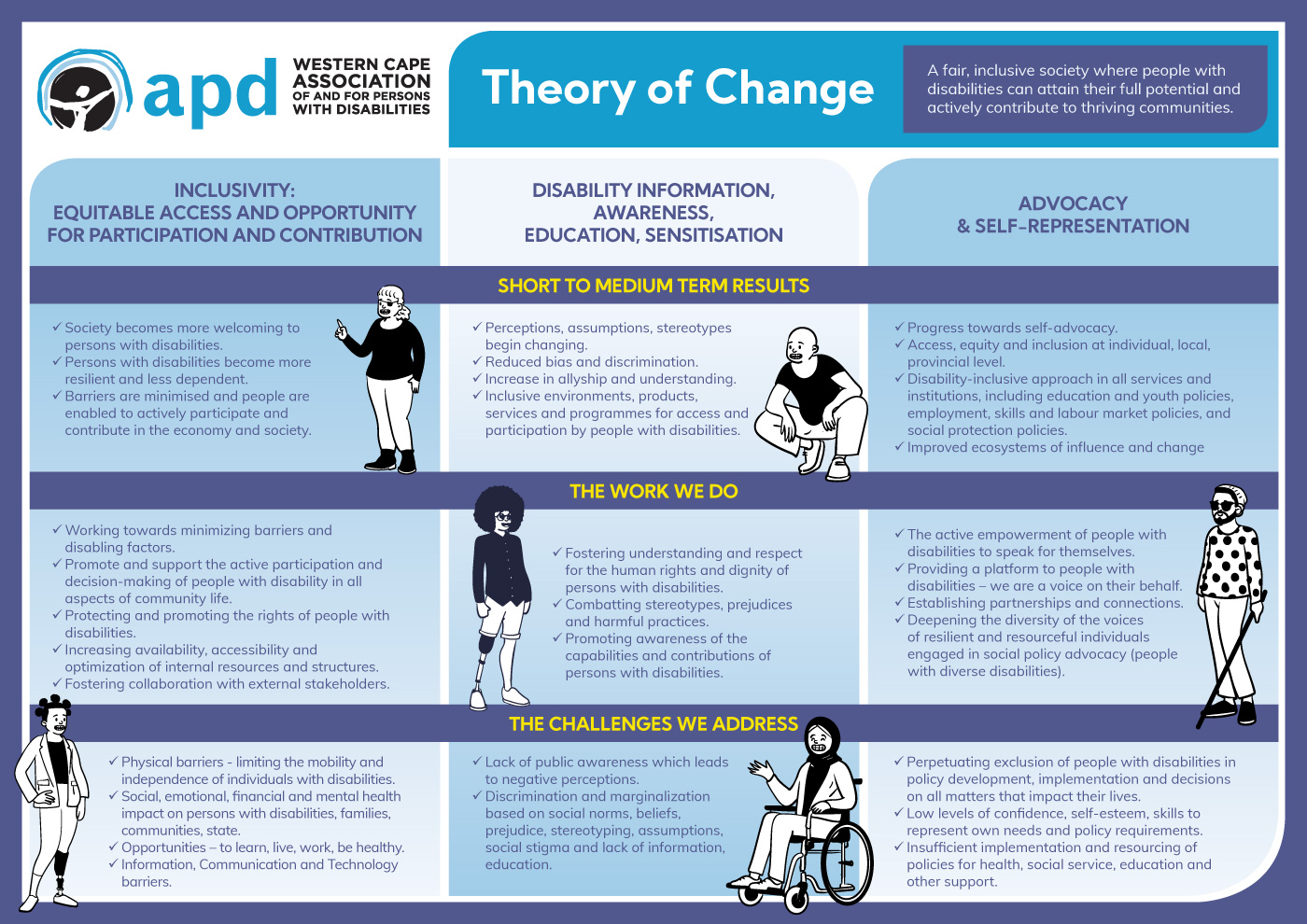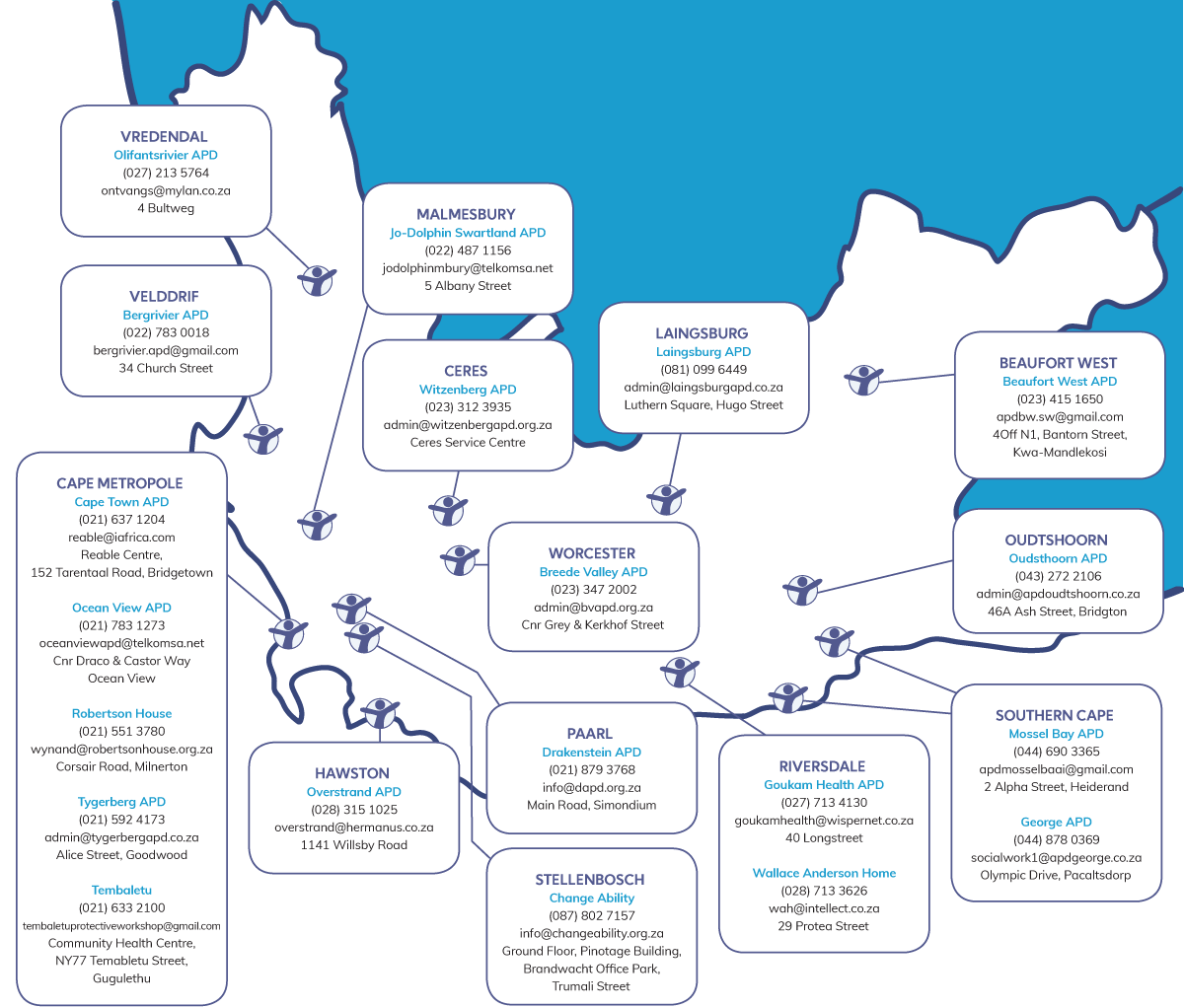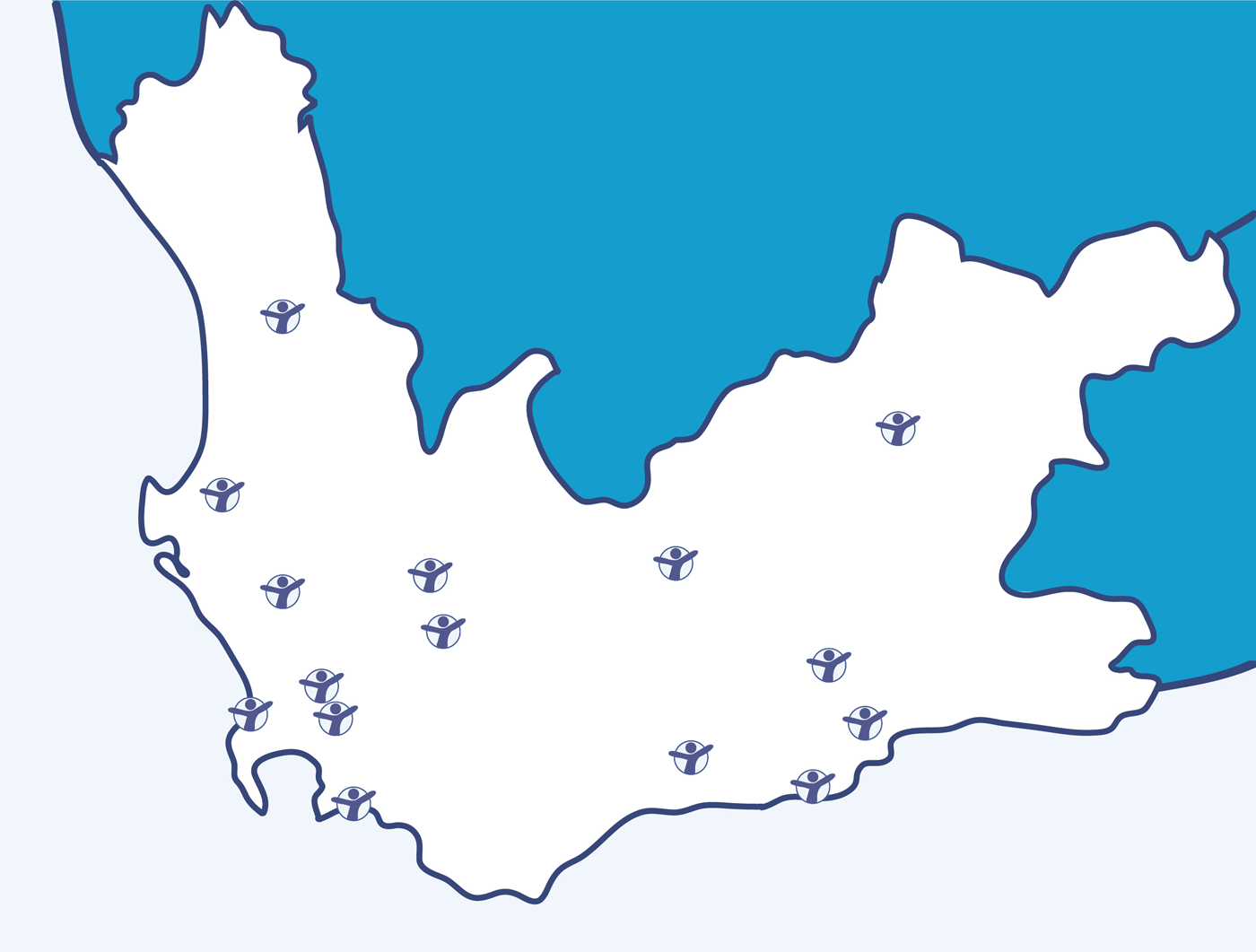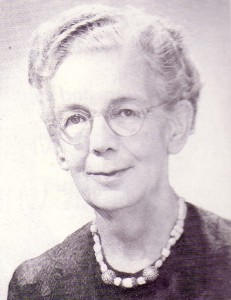About Us
Theory of Change
The Theory of Change is a strategic framework that maps out how meaningful inclusion of persons with disabilities can be achieved. It helps identify the root causes of exclusion, define the conditions needed for change, and guide the interventions that lead to long-term impact. This process began with key questions:
The Theory of Change diagram below visually represents this pathway—from root causes to outcomes and serves as a reference point for aligning programmes and partnerships with our longterm vision.
Metrics for Success
Measuring impact is essential to understanding progress and guiding future action. The Theory of Change is supported by a set of metrics that help evaluate whether strategic interventions are leading to meaningful outcomes. Examples of what can be measured include:
These indicators help monitor progress, inform programme design, and ensure accountability to the communities we serve.
Our Purpose and Principles
Our Structure
WCAPD is among the nine provincial associations located across South Africa affiliated with the National Council of and for Persons with Disabilities (NCPD), which in turn is affiliated with the South African Disability Alliance (SADA) and Rehabilitation International (RI).
It collaborates with various registered APD branches to deliver accessible and inclusive services to individuals with disabilities and their families across the Western Cape.
The rights and responsibilities of each branch are clearly defined in the Branch Constitution.






